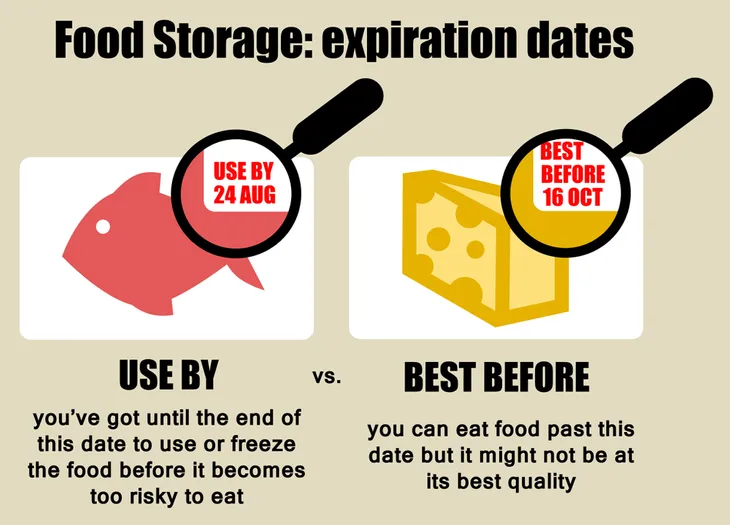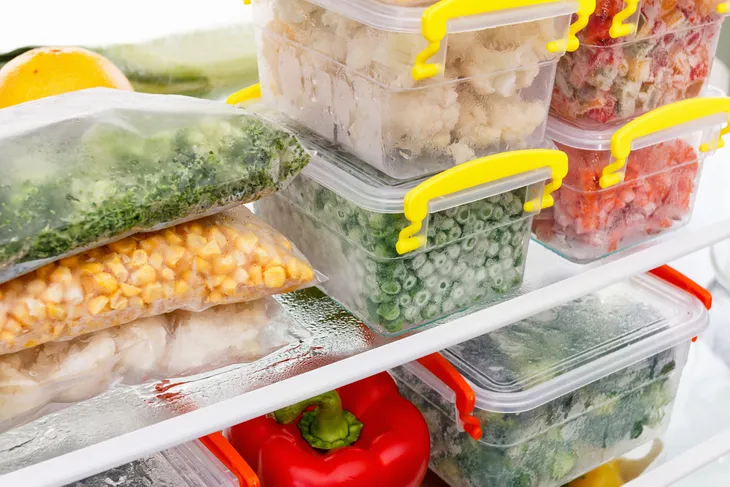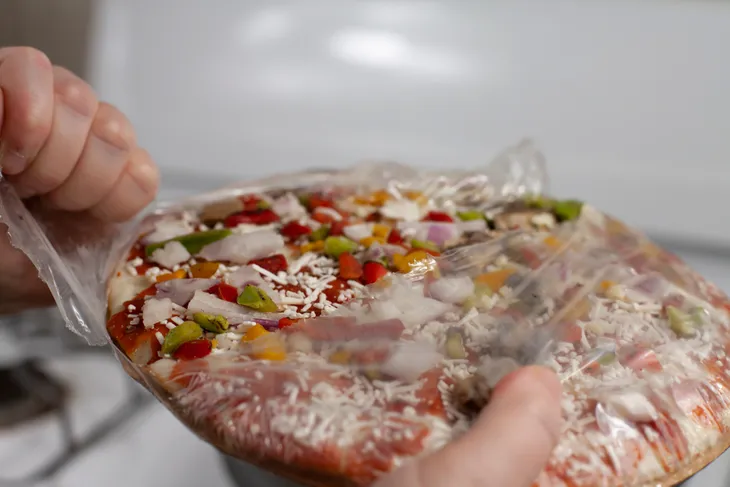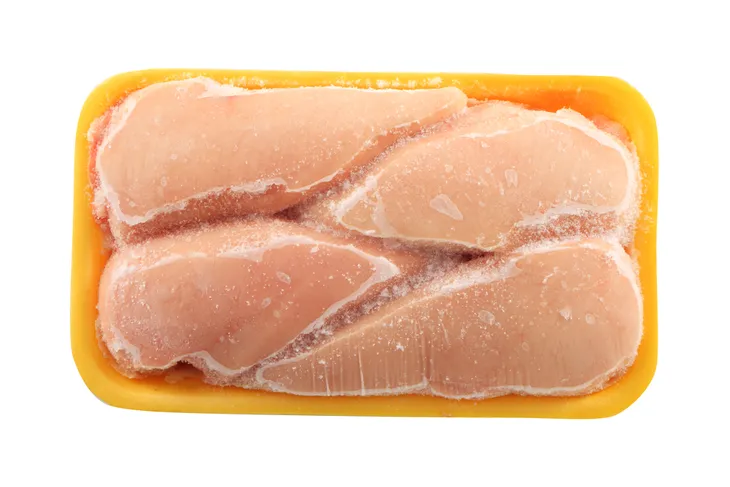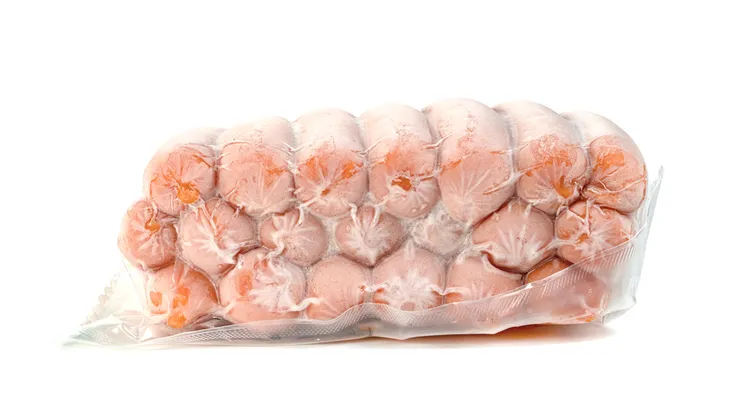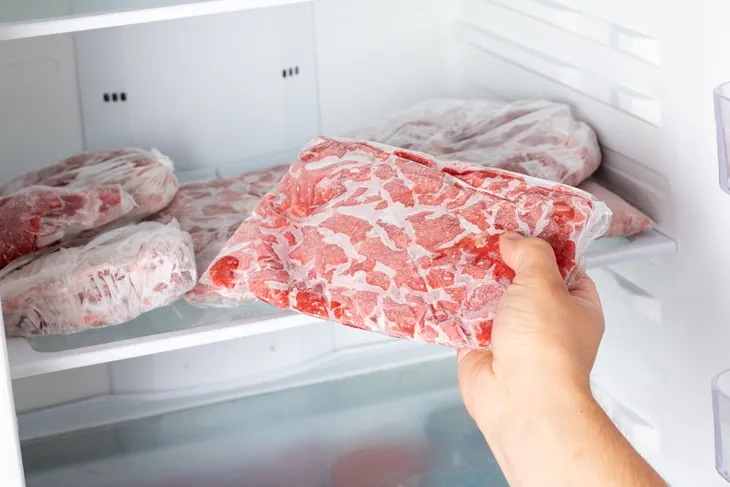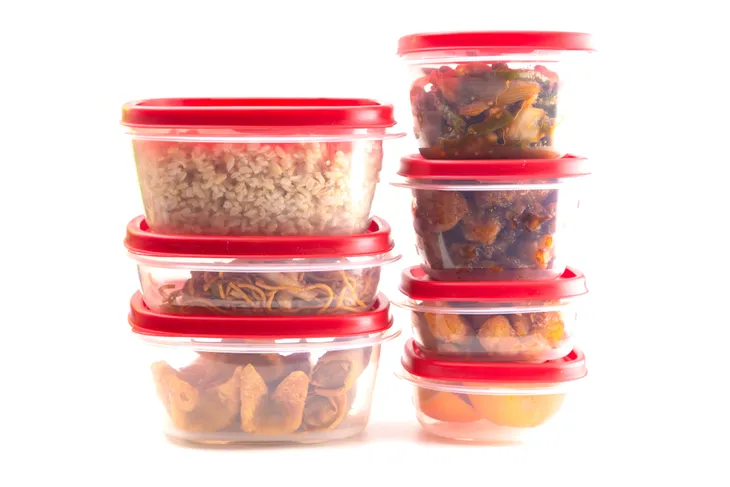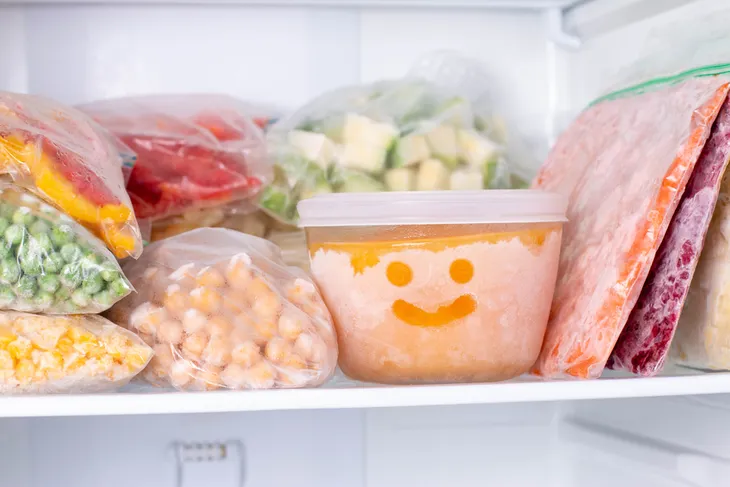- Expiration dates don’t necessarily mean the food is inedible, it’s simply a date set by the manufacturer to tell the consumer when the product is at its peak.
- But is the food still safe to eat, even when frozen and past the expiration date?
- Frozen food is safe to eat for a very long time if kept frozen continuously at 0-degrees Fahrenheit but that doesn’t mean you should! Here’s what you need to know.
Food is expensive and one of the best ways to preserve it is by freezing it. But most foods have an expiration date and when the date approaches you might be wondering if it’s still safe to eat even when frozen. Can chicken that’s been frozen for a year really be safe to eat? Or can packaged frozen foods be prepared even past their best-before date? We’ll answer that and more in this article!
Follow along as we take a look at what the expiration date actually means, plus a list of frozen foods you shouldn’t eat past the expiration date.
Understanding Expiration Dates
Expiration dates don’t necessarily mean the food is inedible. It’s simply a date set by the manufacturer to tell the consumer when the product is at its peak. Past that date, the food may not be as fresh and the flavor and texture may decrease. But that doesn’t mean all food past its expiration date is safe to eat. You still need to look out for signs of spoilage.
Healthline says manufacturers may label their products with the following:
- “Sell by”: is the date the store should sell the product by to ensure it’s purchased while it still has the best flavor and quality.
- “Best if used by” or “use by”: means the product should be consumed by this date to ensure the highest quality.
- “Freeze by”: means the food should be frozen by that date to avoid spoilage.
It’s worth noting, the source explains that the only food that is mandated to include a product date is infant formula. Baby formal should never be consumed past its expiration date.
How Does the Freezer Affect Expiration Dates?
Freezing food is an effective and great way to preserve the nutritional value, quality, and flavor of many different types of foods. It also allows you to eat the food past the “best before” date. Healthline explains that this is because storing food “at 0 °F deactivates microbes (bacteria) that could cause spoilage.” But that doesn’t make the food invincible when frozen and safe to eat forever.
The source says if the freezer is opened often or left open by mistake, the internal temperature may rise higher than 0-degrees Fahrenheit. This increases the chance of spoilage. This is also a possibility during power outages so it’s vital to inspect the freezer once power is restored. Let’s take a look at which frozen foods you’re better off not eating past their expiration date next!
Ice Cream
Ice cream is the perfect treat to quench a sweet tooth craving but what about ice cream that is past its best before date? Since the freezer temperatures help prevent bacterial growth, you can likely eat it past the recommended date but not indefinitely. Unopened ice cream can be safely eaten 2- to 3-months past its expiration date. But an opened container should be consumed within 1- to 2-months.
How long your ice cream is safe to eat greatly depends on how it is stored. For example, if you take the ice cream out of the freezer and let it sit on the counter for a while, to the point it starts to melt, this can allow bacteria to grow. You should also be on the lookout for ice shards. These can form on the top layer of the ice cream and under the lid which can turn the ice cream into a gooey, icy texture over time. If the ice cream has changed texture, it’s really time to toss it.
Frozen Vegetables
Consuming vegetables daily is vital for our health but they don’t last long. The second best option is frozen vegetables which can keep frozen for up to 8- to 12-months! While this is certainly a long time, they still don’t last forever.
If you leave vegetables in the freezer for too long, they’ll begin to lose their color and shrivel in size, explains Bustle. They’ll also start collecting ice crystals. While this likely won’t make you sick, the vegetables will likely have an unappetizing texture and flavor. Not to mention, they may not be as nutritious either. If your vegetables have been in the freezer for longer than a year and are covered in freezer burn, it’s time to get rid of them!
Frozen Pizza
Frozen pizzas are a freezer staple. They’re great for quick and easy dinners that please even the pickiest of eaters! But sometimes frozen foods (including pizza!) fall into the abyss and are forgotten about. So, are they still safe to eat past their date?
Once again, as long as it was correctly stored they’re likely safe to eat past their best before date but that doesn’t mean you should. Left too long, frozen pizza can deteriorate in quality which can be very unappetizing. Look for signs of dry spots or discoloration on the pizza as well as freezer burn. If you notice any of these signs, it’s very likely the pizza won’t taste great and will have a funky texture. You’re better off tossing it and ordering in!
Frozen Potato Products
Potatoes are one of the most versatile ingredients and there are copious prepackaged varieties from fries and tater tots to hash browns. Eating frozen potato products past their expiration date likely won’t make you sick per se (if they’re stored properly, of course), but it doesn’t mean they will taste great.
According to Bustle, frozen potato products that have been stored for too long in the freezer can develop freezer burn. When this happens the cooked texture may be “mealy and pulpy,” explains the source.
Frozen Chicken
According to the U.S. Department of Agriculture (USDA), chicken can be safe indefinitely if kept frozen continuously. While it may be safe to eat if stored properly it doesn’t mean the quality will be great forever.
The source says a whole raw chicken can last for up to 12-months in the freezer. Chicken pieces, such as legs, wings, or thighs are best only for 9-months whereas giblets and ground chicken are only good for 3- to 4-months in the freezer. Cooked chicken can also be frozen but it’s more likely to dry out when stored for long periods of time because it has less moisture than raw meat. Be sure to consume frozen cooked chicken within 4- to 6-months.
Frozen Hot Dogs
Did you know an open package of hot dogs only lasts for one week in the fridge? Unless you’re going to eat them all right away it’s best to preserve them in the freezer! But not for as long as you think.
According to the USDA, hot dogs should only be stored in the freezer for 1- to 2- months for maximum quality. After that, the flavor and texture can greatly decrease.
Frozen Beef
Raw ground beef can only be kept in the fridge for 1- to 2- days but in the freezer, it can last for 3- to 4-months. Raw steaks, on the other hand, can last for 3- to 5-days in the fridge and up to 4- to 12-months in the freezer, according to the American Food Safety website.
Once again the meat will still be safe to cook and eat after that, assuming it was kept frozen continuously at temperatures of 0-degrees Fahrenheit. But even when frozen the quality will begin to deteriorate. It’s best to inspect the meat and look for signs of freezer burn which can indicate the meat has lost moisture and flavor.
Be Mindful of Frozen Bread
Following the best-before date on store-bought bread is important because not only will it not be fresh after about 7-days, but the risk of mold growth is high. Luckily, freezing bread is a great way to increase its shelf life. Frozen bread can last in the freezer for 3- to 6-months. Beyond that, it’s best to toss it.
Over time, bread can develop freezer burn and may absorb the odors of other foods in the freezer. So not only will the bread be dry but it may taste awful too.
How Long do Frozen Leftovers Last?
There is no set best-before date for leftovers so it’s up to you to know how long they last. When stored properly in the fridge, leftovers can last for 3- to 4-days. So if you don’t think you’ll eat your leftovers in that timeframe and don’t want them to go to waste, then store them in the freezer.
To ensure the best quality, frozen leftovers shouldn’t be stored for longer than 3- to 4-months. Beyond that, it’s time to toss them!
Common Signs Frozen Food Has Gone Bad
While the USDA says food can be safe to eat indefinitely if kept frozen continuously at 0-degrees Fahrenheit, that doesn’t mean you’ll want to. Healthline says there are a few key signs to look for that may indicate your frozen food has gone bad and lost quality.
Inspect your freezer once a month and do a sniff test. If products in your freezer smell foul, it’s best to toss them. You should also be on the lookout for freezer burn. The source says this means the food has been exposed to air which can dry out the product and create an unpleasant texture. Pay attention to the texture of the product too because a mushy or slimy texture can indicate spoilage. Finally, the source says to look at the color of the product. “Fading or darkening of a food in addition to changes in smell or texture can indicate spoilage.”
How to Keep Your Frozen Food Safe
The good news is there are simple things you can do to help keep your frozen food safe. For starters, it’s a good idea to inspect the contents of your freezer monthly. Look for the signs we mentioned above and toss any food that is questionable or that has been stored for way too long.
If your freezer doesn’t have a temperature gauge then Healthline says it’s a good idea to keep a thermometer in the freezer. This way you can ensure it stays at 0-degrees Fahrenheit. The source also says to try your best and not open the freezer too often. You should also avoid placing warm foods in the freezer. It’s best to cool cooked food in the fridge before putting them in the freezer. Finally, you can also store food in airtight containers to avoid exposure to air and odors that can alter the flavor of the food.

